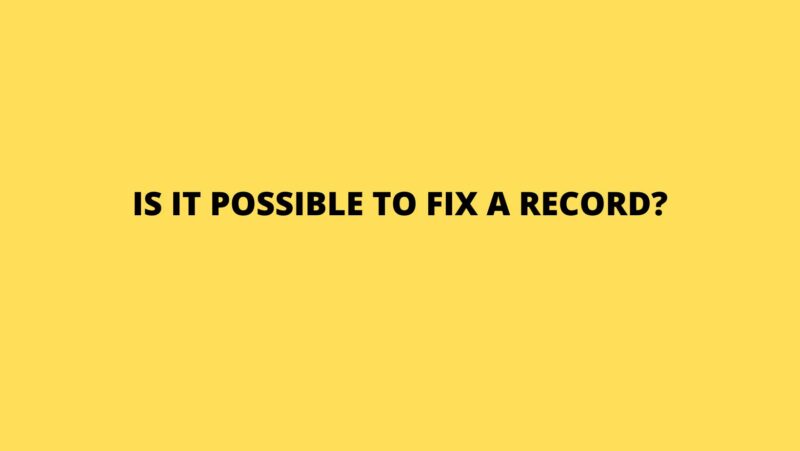Vinyl records are a physical medium for storing audio. They are made of a polyvinyl chloride (PVC) disc with a spiral groove etched into the surface. The groove represents the sound waves of the music, and a needle follows the groove as it plays, translating the vibrations into sound.
Vinyl records can be damaged in a number of ways, including scratches, scuffs, warping, and groove wear. Scratches and scuffs are the most common types of damage, and they can be caused by mishandling, dirt, and dust. Warping is caused by changes in temperature or humidity, and it can make the record unplayable. Groove wear is caused by prolonged use, and it can cause the sound quality to deteriorate.
Types of record damage
- Scratches: Scratches are the most common type of record damage. They can be caused by mishandling, dirt, and dust. Scratches can be shallow or deep, and they can affect the sound quality of the record.
- Scuffs: Scuffs are less severe than scratches, but they can still damage the sound quality of the record. Scuffs are caused by light abrasion, such as from dust or fingerprints.
- Warping: Warping is caused by changes in temperature or humidity. Warped records can be difficult to play, and they may cause the sound quality to deteriorate.
- Groove wear: Groove wear is caused by prolonged use. As the needle plays the record, it wears away the grooves. This can cause the sound quality to deteriorate and make the record unplayable.
Can records be fixed?
Yes, records can be fixed, but the success rate of repair depends on the severity of the damage. Minor scratches and scuffs can often be fixed with a DIY repair kit. However, more severe damage, such as warping or groove wear, may require professional repair.
DIY record repair methods
There are a number of DIY methods for repairing scratched records. One common method is to use a record cleaning brush. The brush is used to remove dirt and dust from the record, which can help to reduce the severity of the scratches. Another method is to use a record repair kit. These kits typically include a cleaning solution and a polishing compound. The cleaning solution is used to remove dirt and dust, and the polishing compound is used to fill in the scratches.
Professional record repair services
If the damage to your record is too severe for DIY repair, you may need to take it to a professional record repair service. Professional repair services typically use more sophisticated equipment than DIY kits, and they have more experience in repairing records.
The cost of record repair
The cost of record repair varies depending on the severity of the damage and the location of the repair service. In general, DIY repair kits are the most affordable option, followed by professional repair services.
The success rate of record repair
The success rate of record repair also varies depending on the severity of the damage. Minor scratches and scuffs can usually be repaired with a high degree of success. However, more severe damage, such as warping or groove wear, may be more difficult to repair, and the success rate may be lower.
How to prevent record damage
The best way to prevent record damage is to handle them with care. Here are a few tips for preventing record damage:
- Always wash your hands before handling records.
- Keep records in a clean, dry place.
- Avoid exposing records to direct sunlight or heat.
- Do not stack records on top of each other.
- Use a record cleaning brush to remove dirt and dust from records.
Conclusion
Whether or not to fix a record is a personal decision. If the record is valuable or sentimental, it may be worth the investment to have it professionally repaired. However, if the record is not very valuable, it may be more cost-effective to simply replace it.


